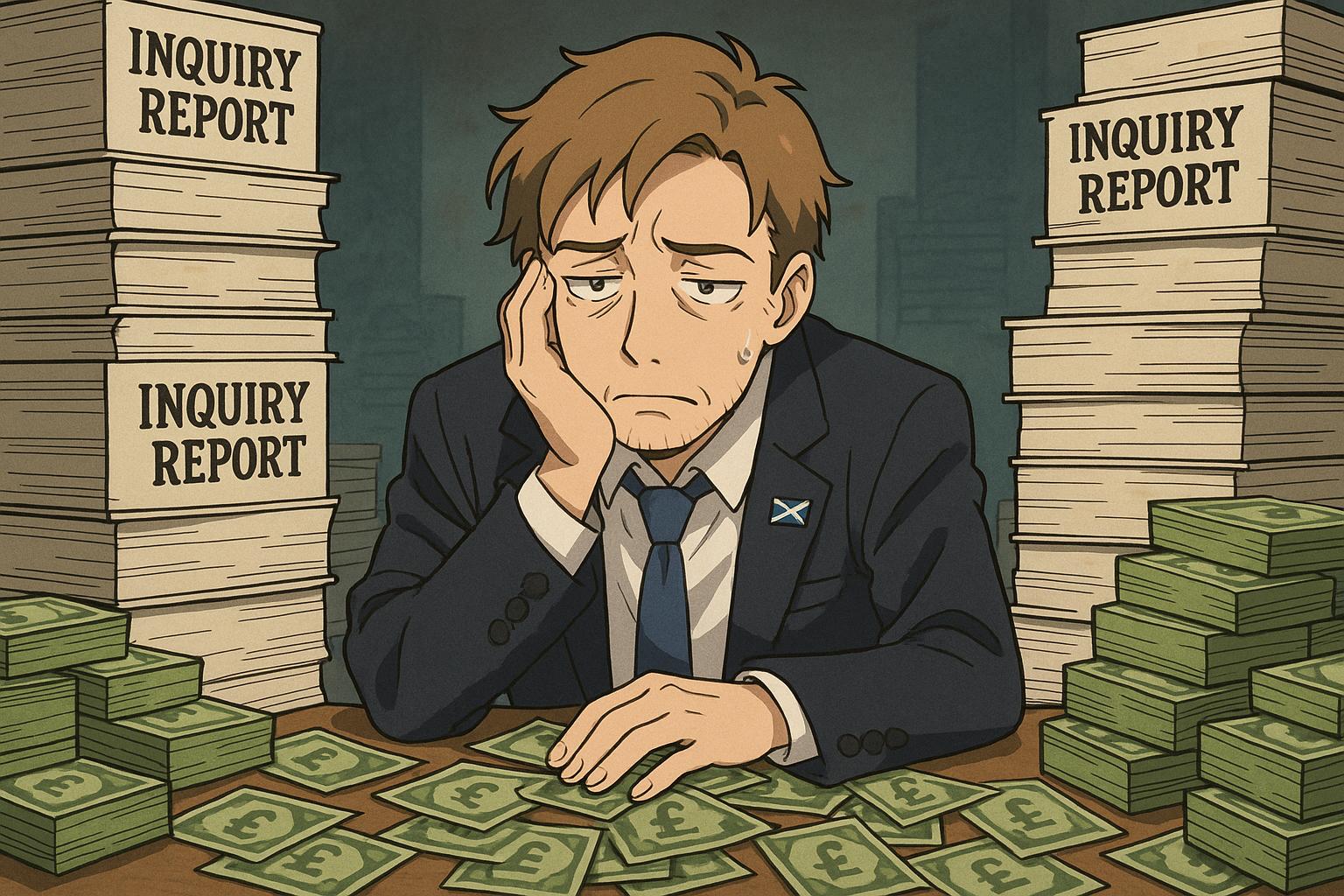In recent years, Scotland has witnessed a remarkable increase in public inquiries, emerging as a significant fixture in the political landscape. These inquiries often serve as a refuge for politicians facing criticism, allowing them to defer accountability while investigations are underway. This trend has escalated to the extent where statutory inquiries appear to have become Scotland's primary growth industry, drawing scrutiny over their staggering costs to taxpayers.
The financial burden of these inquiries is profound, with the total expenditure soaring to £230 million. This figure is alarming, especially when considered in the context of Scotland’s tight public finances. As the Finance and Public Administration Committee of the Scottish Parliament initiates an examination into the economic impact of these inquiries, itstheir ability to deliver tangible benefits and lessons learned remains under debate. According to data, the Scottish government alone has spent £150.4 million on running costs for ongoing inquiries, while public bodies have additionally incurred costs of £36.4 million to participate. Notably, £3.3 million has been allocated for the salaries of inquiry chairs involved in the proceedings.
Several inquiries have captured public interest, most prominently the Scottish Child Abuse Inquiry, which has generated revelations that have stirred societal discourse. Launched a decade ago, it has incurred around £95.3 million in running costs, often lauded for its role in illuminating past abuses within various institutions. Yet, as inquiries prolong their timelines and inflate their budgets, many question their efficacy. The inquiry into the death of Sheku Bayoh, which has already cost approximately £24.8 million, typifies the situation where financial resources become entangled in lengthy bureaucratic processes, leaving stakeholders frustrated and the public disillusioned.
Other inquiries, such as those scrutinising the Covid-19 pandemic and hospital safety, have similarly racked up substantial costs. The ongoing scrutiny raises a crucial question: what alternatives might exist to ensure accountability without the financial drain? With many inquiries costing millions without delivering timely outcomes, the case for reform is becoming increasingly pressing. Professor Sandy Cameron, who previously chaired the Independent Jersey Care Inquiry, recently remarked to MSPs that “we need to think about other ways of achieving justice,” emphasising the urgent need for a reevaluation of the system.
The Scottish Parliament is beginning to take notice of the need for significant reform. The Finance and Public Administration Committee's forthcoming investigation seeks to assess the establishment and operation of public inquiries, their cost-effectiveness and potential spending controls. With historical data revealing that the UK and devolved governments have spent at least £1.5 billion on public inquiries since 1990, there exist compelling reasons for why such scrutiny is overdue. The sheer scale of public money spent, juxtaposed against the bureaucracy and perceived inefficiencies, foster growing discontent among taxpayers who find their financial contributions increasingly encumbered by the follies of government administration.
Inquiries have often been perceived as responses to political expediency rather than mechanisms of change. The trams debacle, which bled taxpayers dry to the tune of over £400 million amid systemic failings, remains a poignant example of how the inquiry system has faltered. Lord Hardie's inquiry unearthed a plethora of mismanagement issues, yet many believe that the findings merely sit “on ministers’ shelves gathering dust,” as he lamented.
The study of how inquiries are managed and funded could pave the way for more cost-efficient and potentially less cumbersome methods of achieving accountability. As Scotland grapples with the challenges of governance and public trust, the rise of inquiries raises a broader conversation about the nature of public accountability—one that demands urgent attention, lest taxpayers continue to bear the heaviest burdens of bureaucratic delay and mismanagement.
The pressing needs emerging from the inquiries underscore an underlying truth: a more judicious approach to governance may lead to fewer inquiries, thus saving significant public funds and restoring faith in the political system. For the time being, however, it appears the bill for public incompetence will only escalate as inquiries become increasingly entrenched in Scotland's political narrative.
Reference Map:
- Paragraph 1 – [1], [2]
- Paragraph 2 – [1], [5]
- Paragraph 3 – [3], [4]
- Paragraph 4 – [6], [7]
- Paragraph 5 – [1]
Source: Noah Wire Services
